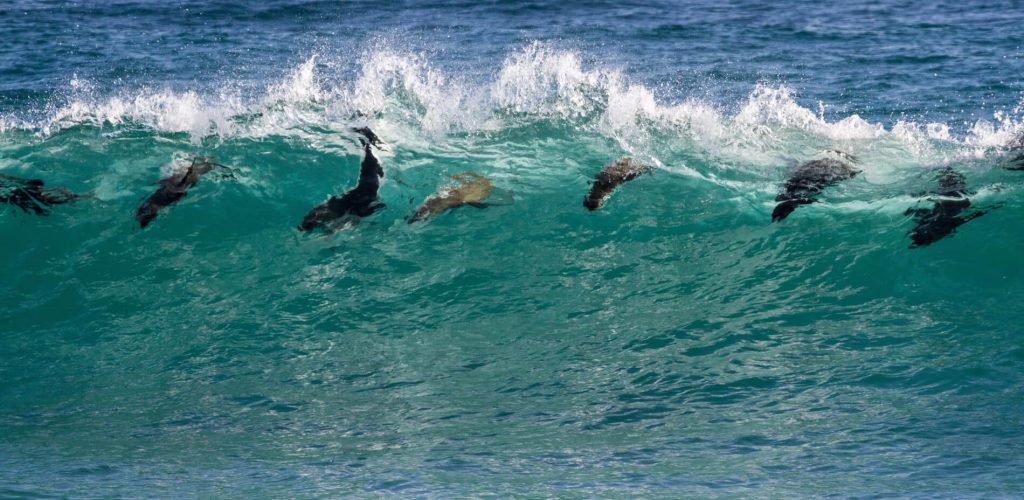I’ve lost count of the times I’ve seen a black shape darting beneath me while surfing, only to realize it’s a Cape fur seal sharing the wave. But now, with nine seals testing positive for rabies – the first significant marine mammal outbreak – surfers along this 400-mile coastline are on high alert.
Gregg Oelofse, Cape Town council’s coastal management head, shares an encounter: “I was surfing recently when a seal surfaced among us. Normally, we’d enjoy the interaction, but everyone paddled away hastily.”
Last month, a seal bit multiple surfers, and another showed up with severe facial injuries, leading authorities to euthanize and test four seals for rabies. Three tested positive, and the count has since risen to nine.
Scientists from the University of Pretoria are studying the virus to pinpoint its entry into the seal population. Although rabies is common among southern African wildlife, these animals rarely interact with humans.
Seal behavior changed a few years ago. Oelofse’s team noted increased seal aggression in Cape Town in late 2021, following sporadic reports of seal attacks on humans. They partnered with Sea Search and the SPCA to investigate, considering rabies as a potential cause, albeit unlikely due to its rarity in seals.
Oelofse clarifies that the rising case numbers don’t indicate an exponential outbreak. They’re testing previously euthanized animals, thanks to Sea Search’s preservation of 120 brains over two and a half years.
Surfers and swimmers are advised to seek immediate medical attention if bitten by a seal. Rabies can incubate anywhere from a week to two years, typically taking a few months.
Reassuringly, Oelofse believes that while many have been bitten by rabid seals, no human infections have occurred yet. The reason remains unclear: perhaps the transmission rate is low, or saltwater reduces the viral load?
Two million Cape fur seals inhabit colonies from southern Angola to Algoa Bay, says Dr. Greg Hofmeyr, a marine biologist with 32 years of seal research experience. They often spend days to weeks at sea, covering vast distances, and rest or mate on islands. Their close proximity during these times raises concerns about rapid rabies transmission.
Lifeguards and shark spotters now close beaches if they spot an aggressive seal. The public is urged to report unusual seal behavior, keep dogs leashed, and avoid habituated harbor seals.
While caution is advised, Oelofse reassures that “a relaxed seal is unlikely to pose a threat.”
With no established ‘best practice,’ authorities are proactive. They’re keen to understand the disease’s transmission rate and potential impact on seals and other coastal mammals. Above all, they’re determined to prevent human rabies cases.










